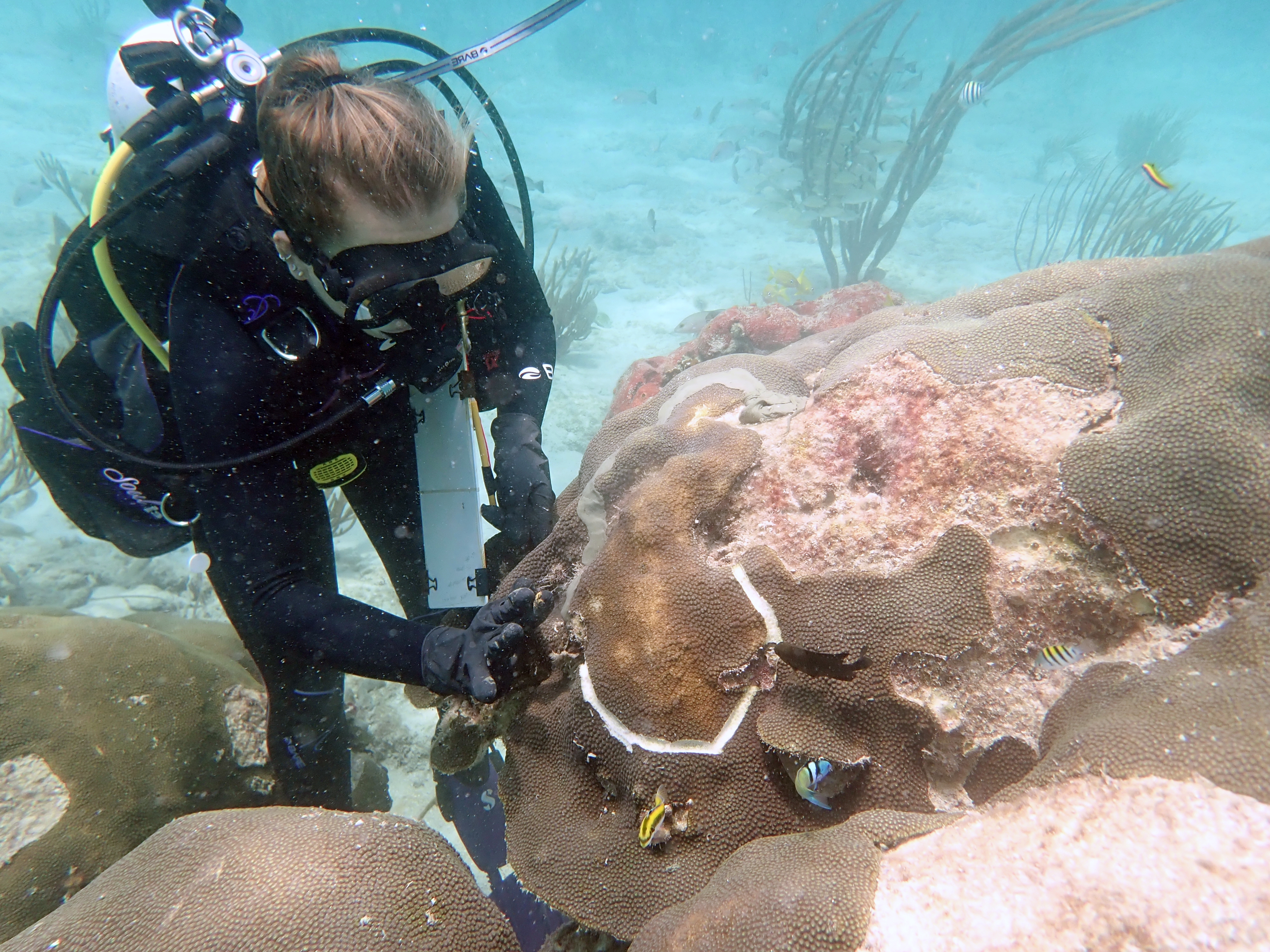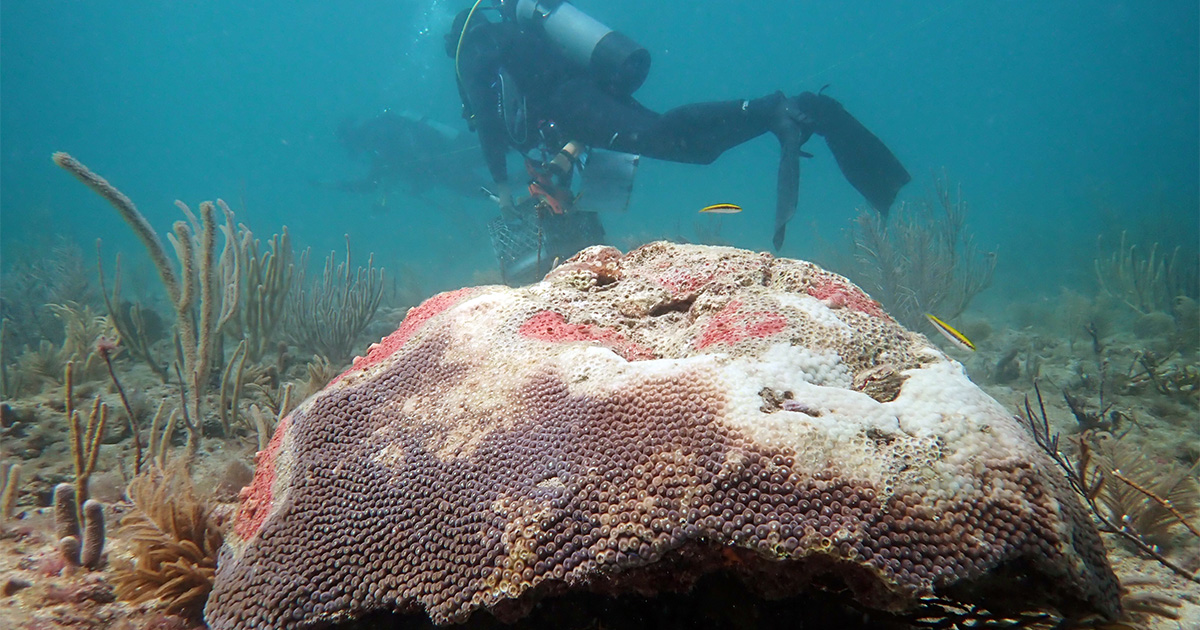Since 2014, Florida's Coral Reef has been fighting an outbreak of a communicable, waterborne disease called stony coral tissue loss disease (SCTLD).
Just released, the Stony Coral Tissue Loss Disease & Response on Florida's Coral Reef: Winter 2023 Overview details the status of the reefs, the state of the disease and activities for research, response and reef recovery conducted to date. Co-authored by Florida Sea Grant and other lead organizations from the Florida Coral Disease Outbreak Response Communications Team, the report also offers hope for stony coral restoration and a call to action for communities.
"Florida's Coral Reef is a national treasure with enormous economic, cultural and intrinsic value," said Shelly Krueger, a Florida Sea Grant agent at UF/IFAS Extension Monroe County and co-author of the report. "It supports an amazing diversity of marine life and offers abundant ecosystem services to millions of residents and visitors. It also annually supports 71,000 full- and part-time jobs while generating $6.3 billion in combined local sales and income."

Research, progress, and outcomes reported in the document are the result of eight years of work conducted by a team of partners from federal, state and local government agencies, non-governmental organizations, universities, aquariums, and members of the diving community. Partners have been researching the disease, developing and applying treatments, rescuing vulnerable and surviving corals, strategically restoring coral populations, and much more.
Recorded as one of the most aggressive diseases in history, SCTLD has infected more than half of the 45 species of stony coral along Florida's Coral Reef and the Caribbean.
"Although disease is a natural part of any ecosystem, SCTLD is arguably worse than any other recorded coral disease due to the combination of its geographic range, longevity, number of species affected, and high mortality rates," said Krueger.
 Scientists apply an antibiotic paste to stop the progression of SCTLD. (Photo credit: Brian Walker)
Scientists apply an antibiotic paste to stop the progression of SCTLD. (Photo credit: Brian Walker)
Researchers and partners agree that while the situation is urgent, there is still time to preserve and support the recovery of this vital ecosystem.
"Now that the disease has made its way across the entire reef tract, we are seeing less of the disease in southeast Florida and the Florida Keys, potentially due to the dramatic loss of susceptible species," said Jennifer Stein, coral biologist at the state Fish and Wildlife Research Institute. "We are, however, seeing juveniles of these susceptible species within our surveys. These juveniles are evidence that some susceptible species can naturally repopulate, offering some hope for the reef tract."
The full document, Stony Coral Tissue Loss Disease & Response on Florida's Coral Reef: Winter 2023 Overview, is available on the Florida Sea Grant site. For more information on efforts to cope with the disease, visit the FDEP Stony Coral Tissue Loss Disease Response site.



